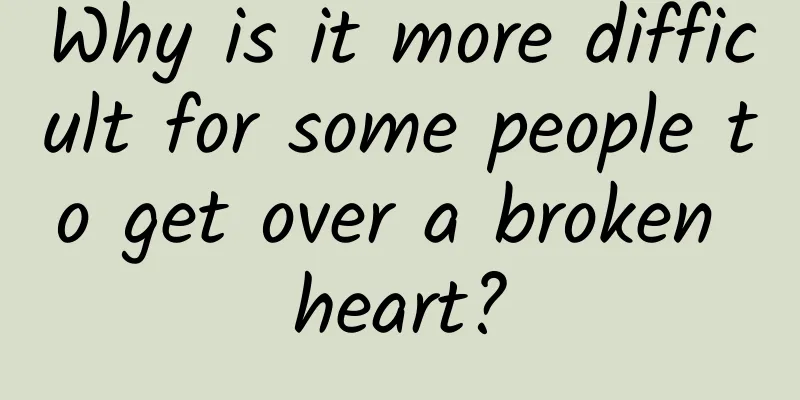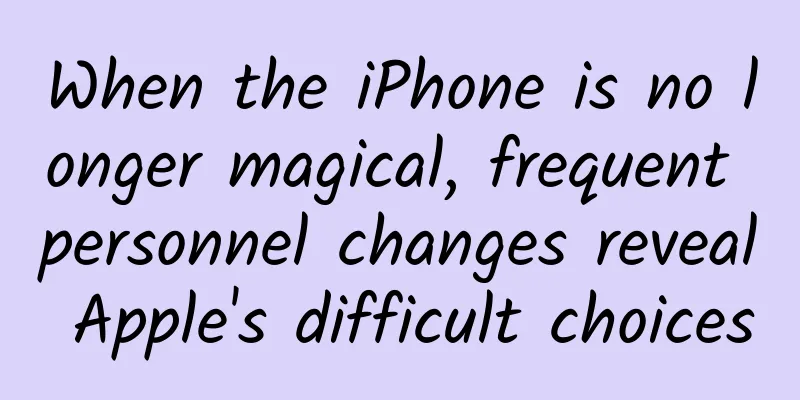Why is it more difficult for some people to get over a broken heart?

|
© Eric Thayer/Reuters Leviathan Press: Humans are creatures of experience. Generally speaking, the characteristics of seeking benefits and avoiding harm will benefit individuals. But sometimes, experience often means the continuous reinforcement and solidification of past experiences, which makes it difficult for people to break out of the limitations of experience and face more possibilities in life and emotions - this is especially true for many people who have just experienced a breakup. The more troublesome situation is roughly: summarizing the experience of a breakup → leading to self-depreciation → due to low self-evaluation → unwilling to develop the next relationship... However, according to the design of this article, it is normal for couples with high overlapping intimacy to find it difficult to get out of the shadow after breaking up, which often means that they need to spend more time to rebuild themselves. At the same time, it is reasonable to have negative expectations of the next partner because the previous relationship was too perfect. After a painful breakup, people often become mired in self-doubt: What went wrong? In the process of trying to find answers, people often reconstruct the story of the relationship, analyzing the events that led to the breakup and using them to form a complete narrative. Sometimes this method of storytelling can have a positive effect, helping people to sort out and accept painful experiences. But sometimes it can have a negative effect, instead of alleviating the pain, it can exacerbate the pain. My colleague Carol Dweck and I have studied why some people struggle to get over a breakup while others bounce back quickly. In the process, I’ve read hundreds of stories about relationships that have ended, which offer some ideas about why people react so differently to a breakup. © GIPHY In one study, Dweck and I asked people to recall a time when they had been rejected in a relationship and to answer the question: What did you learn from this breakup? Some people’s responses made it clear that the breakup defined them—they assumed that their ex must have disappointed them in some way. For example, one person wrote: “We had a great relationship, but all of a sudden he stopped communicating with me. I don’t know why, but I think he thought I was too clingy and that scared him off.” Another wrote: “I realized that I was too sensitive and would always push people away for fear that they would push me away first. This is a very bad trait, it drives people crazy and makes them stay away from me.” (journals.sagepub.com/doi/abs/10.1177/0146167215612743) "We had a good relationship, but all of a sudden, he stopped communicating with me. I don't know why." In these stories, broken relationships seem to expose hidden character flaws, causing people to question themselves or change their views of themselves, with many even feeling that they have personality flaws that could damage other relationships. One study participant wrote, “I found that some of my personality traits destroyed my happiness.” Another participant confessed, “I just felt abandoned and it hurt. I tried to tell myself that it was not my fault but the other person’s loss, but I couldn’t help but feel inferior.” Many of these stories are similar to my friends’ own experiences. They all ask, “Why am I not good enough?” or “Is there something I did wrong?” When they see their ex in a new relationship, they often ask themselves, “How am I not as good as him/her?” It is healthy to reflect on the relationship after a breakup, learn from it, and think about how to do better in the next relationship. But there is always a risk of overdoing it. If people think too much and start to question their own value, this approach will backfire. © Monophy It’s easy to fall into the trap of self-deprecation after the loss of a partner. Psychologist Arthur Aron and his colleagues have found that people in close relationships fuse their self with their partner. In other words, we begin to see our partner as part of ourselves—with both of our personalities, memories, and identities blended together. Aron's team devised a way to measure the intimacy of a relationship by asking people to imagine themselves as a circle and their partner as another circle, and the overlap between the two circles represented the level of intimacy. (psycnet.apa.org/record/1993-03996-001) Losing a partner can also lead to losing yourself to some extent. In some ways, the overlap of two selves can be a very positive part of a relationship. As people get to know their romantic partner, they often quickly adopt the other person's interests and identities, open up to new perspectives, and expand their own worldview. One of the best things about being in a relationship is that it exposes people to new things and increases their self-awareness. (onlinelibrary.wiley.com/doi/pdf/10.1002/9780470998557.ch19) But it also means that when a relationship ends, the loss of a partner can also lead to a loss of self in some ways. One study found that after reflecting on a breakup, people used fewer personal words to describe themselves in brief self-descriptions. And the more people felt they had grown in the relationship, the more their self-image collapsed after the breakup. (journals.sagepub.com/doi/abs/10.1177/0146167209352250) (onlinelibrary.wiley.com/doi/10.1111/j.1475-6811.2006.00120.x/abstract) In our research, those whose self-image hit rock bottom after a breakup reported the longest period of distress. Additionally, those who questioned who they really were after a breakup also frequently reported that they still felt pain from time to time when thinking about their ex. The pain of a breakup can linger for years. Writing about what they took away from the breakup, one study participant said, “The emotional pain is unbearable. It keeps me up at night sometimes… It’s been 10 years, but the pain has never gone away.” If the denial experienced in a breakup reveals negative facts about a person that they had not previously discovered, it can translate into an increasingly painful burden. © Conde Nast Traveler When a breakup was tied to their self-concept, people were also more likely to feel daunted by the experience. People reported feeling more defensive around new partners and “putting up walls.” One participant wrote, “I feel like I can’t open up to new people because I’m afraid of being rejected again.” People who believe that their breakup was their fault worry that it will happen again in other relationships. They fear that future relationships will fail, and that no matter how hard they try, they won’t be able to find someone else who loves them. “Breakup is like opening Pandora’s box, and concepts like love and trust become fantasies that never really existed.” In some cases, a breakup can completely change people’s perspectives on relationships, leaving them pessimistic about the nature of relationships. As one person wrote: “For me, a breakup was like opening Pandora’s box, and concepts like love and trust became fantasies that never really existed.” So, what kind of breakup is healthy, one that allows a person to get over it quickly with minimal emotional harm? Some participants in our study viewed the breakup as having little to do with themselves, viewing rejection as a unilateral, unpredictable action rather than the result of a personal flaw. One person wrote: "Sometimes girls just aren't interested. It has nothing to do with you, they just aren't interested." Another noted that being dumped isn't a denial of one's worth: "I think both parties are great individuals, but that doesn't mean they belong together." Another thought being dumped was a universal experience: "Everyone gets dumped. It's just part of life." Another group of people saw the breakup as an opportunity to grow, often mentioning specific skills they learned from the breakup. Communication was a common topic: People described how being dumped helped them understand the importance of clearly communicating their expectations, how to spot differences in goals, and how to express what they wanted in a relationship. Others wrote that the breakup helped them accept that they couldn’t control other people’s thoughts and actions, or learned how to forgive others. So, believing that the breakup and the self are independent of each other makes the breakup easier to accept, while believing that the two are related makes the breakup harder to accept. But why do these two different attitudes occur? Previous research by Dweck and others has found that people hold two different views on personal qualities: some believe that personal qualities are fixed throughout a person's life, while others believe that personal qualities are malleable and can be developed at any time. These views affect how people respond to setbacks. For example, when faced with the same failure, people who believe that intelligence is fixed are more vulnerable than those who believe that intelligence can be developed. And when we asked people to reflect on past dumpings, we found a link between people who believed their personal traits were unchangeable and people who believed rejection revealed their true selves. If someone believes their traits are unchangeable, then discovering a negative trait can be like a life sentence for them, and they can’t escape that flaw for the rest of their lives. But if people believe traits can be changed, then discovering a negative trait can actually lead to personal growth. In other words, the stories we tell ourselves about being dumped can influence how and what we do about rejection. Past research has shown the importance of storytelling in other areas. For example, recovering alcoholics who tell stories of redemption—of learning something from their experiences—stay sober longer than those who don’t. And narratives that frame key decisions, including getting married or divorced and changing jobs, as pursuing a desired future rather than escaping an unhappy past are associated with greater life satisfaction. (psycnet.apa.org/record/2013-05828-002) (onlinelibrary.wiley.com/doi/abs/10.1111/j.1467-6494.2005.00346.x) In this light, one way to make a breakup a little easier might be to consciously think about how we construct a narrative about the experience. One might think: I didn’t communicate well in this relationship; I guess I just can’t open up to someone. But another narrative could be: I didn’t communicate well in this relationship, but I can change, and I’ll definitely have a better relationship in the future. Perhaps the healthy habit of questioning our own narratives can help us tell better stories and increase our courage and resilience in the face of adversity. By Lauren Howe Translated by Rachel Proofreading/Amanda Original article/www.theatlantic.com/health/archive/2016/01/romantic-rejection-and-the-self-deprecation-trap/424842/ This article is based on the Creative Commons License (BY-NC) and is published by Rachel on Leviathan The article only reflects the author's views and does not necessarily represent the position of Leviathan |
<<: Painting Story | What makes cherries, the “top New Year’s product”, so expensive?
Recommend
How to choose the first release channel? 8 hidden rules of APP operation
First, let Zhuge help you understand the position...
How to advertise ethically during APP promotion
Whether a product can last long depends first on ...
What should I do if my Tik Tok works are not recommended?
After the emergence of Kuaishou short video, shor...
In less than a month, I earned 20,000 yuan a month. I will share with you the tips on making money without doing anything.
In less than a month, I earned 20,000 yuan a mont...
Why do my eyes feel uncomfortable when I look at the computer at work?
As we all know, eyes are called "windows to ...
Java Journey: A Traveler's Map
[[163802]] Some time ago, I sorted out my Java kn...
Three modes of pair design
[[148849]] Pair programming is an agile software ...
New ideas for old problems: Mobile development strategies - which is better, native or hybrid?
【51CTO.com Quick Translation】 Which solution is b...
Gartner: AI Semiconductor Market to Reach $53.4 Billion in 2023
Semiconductors used to perform artificial intelli...
Ultra-long battery life for mobile phones is no longer a dream! Technology giants gamble on new battery technology
Beijing time, April 16, Bloomberg News wrote toda...
Metaverse Marketing: 4 Transformations Brands Need to Face!
Since the beginning of this year, the "metav...
Google Chrome finally supports CSS Variables
This article is not about "news", becau...
New media operation, how to write a hit article?
In the past few years, many types of articles hav...
How much does it cost to customize the Handan musical instrument mini program? Price inquiry for customized Handan musical instrument app
The mini program provides convenience for publici...
Guilin SEO Training: How to write the Nofollow tag? What are the impacts on SEO?
The "nofollow" tag was proposed by Goog...









